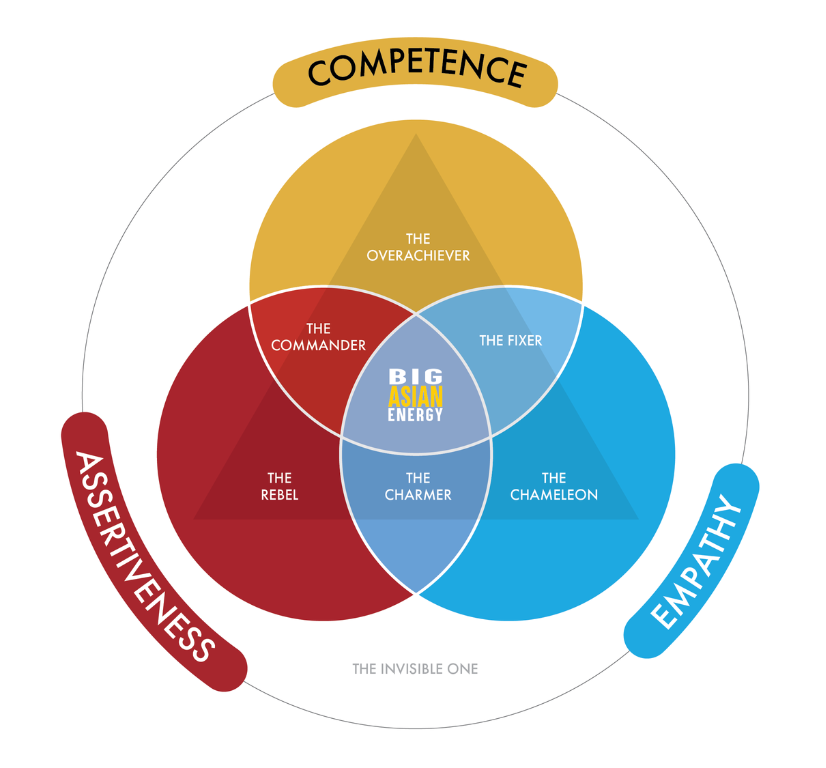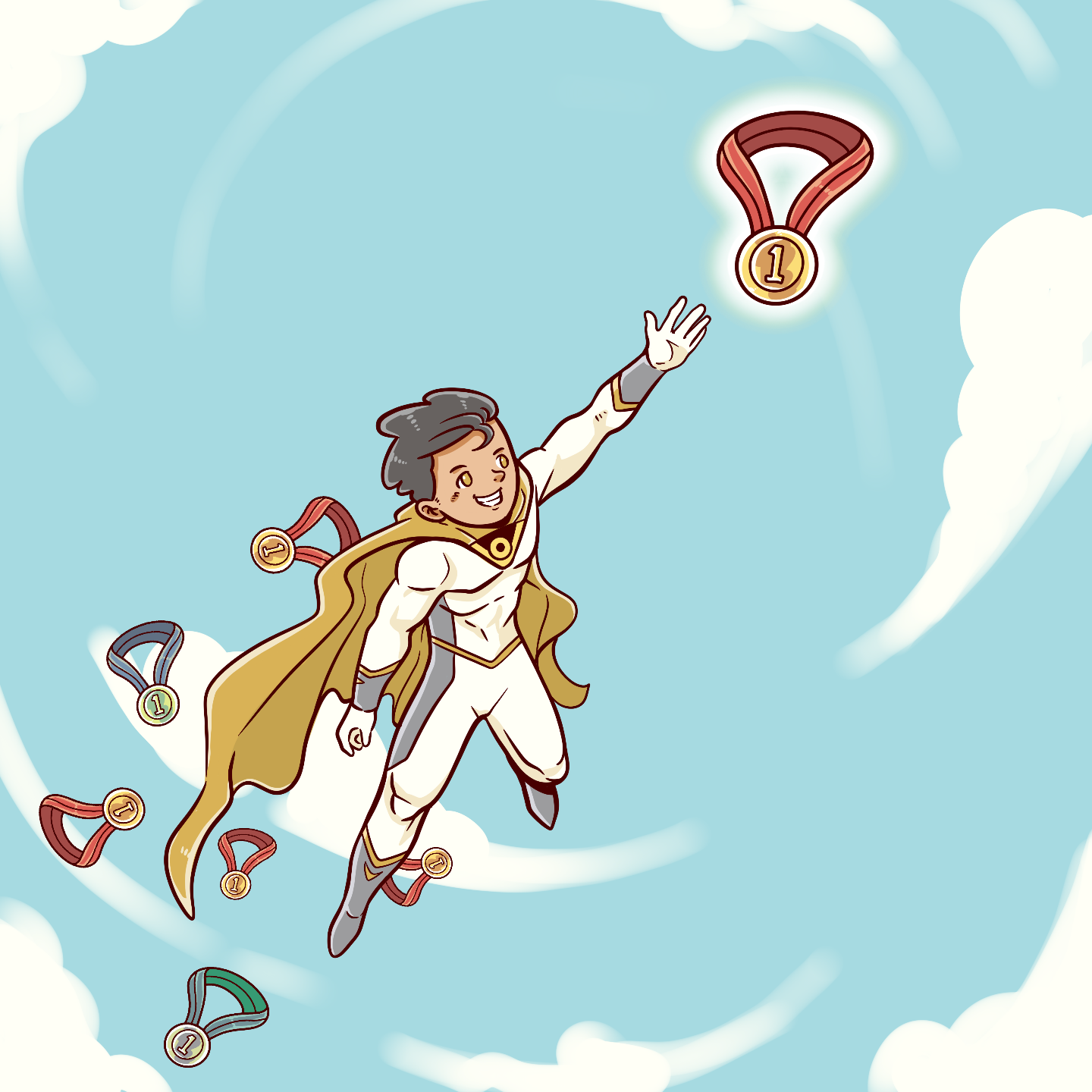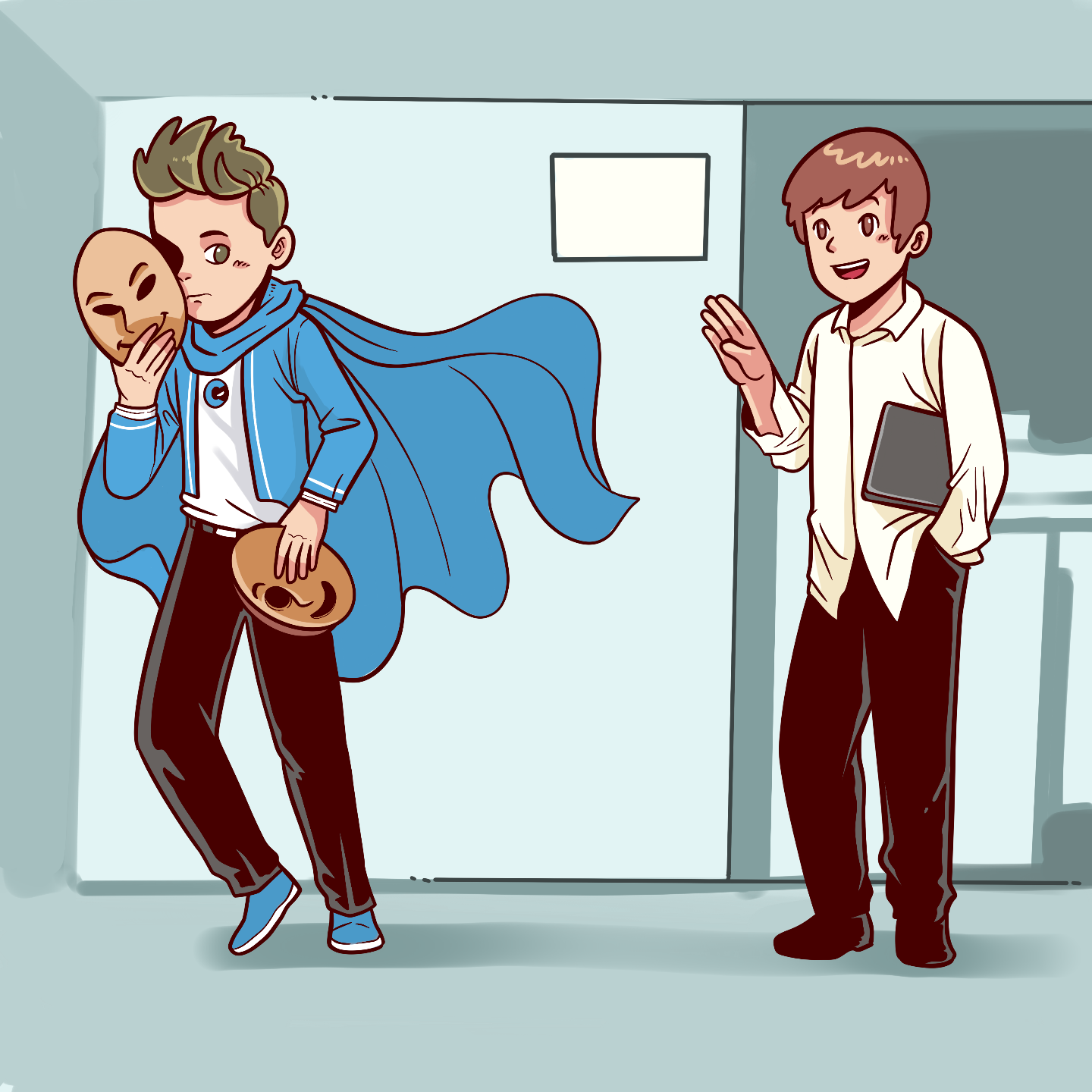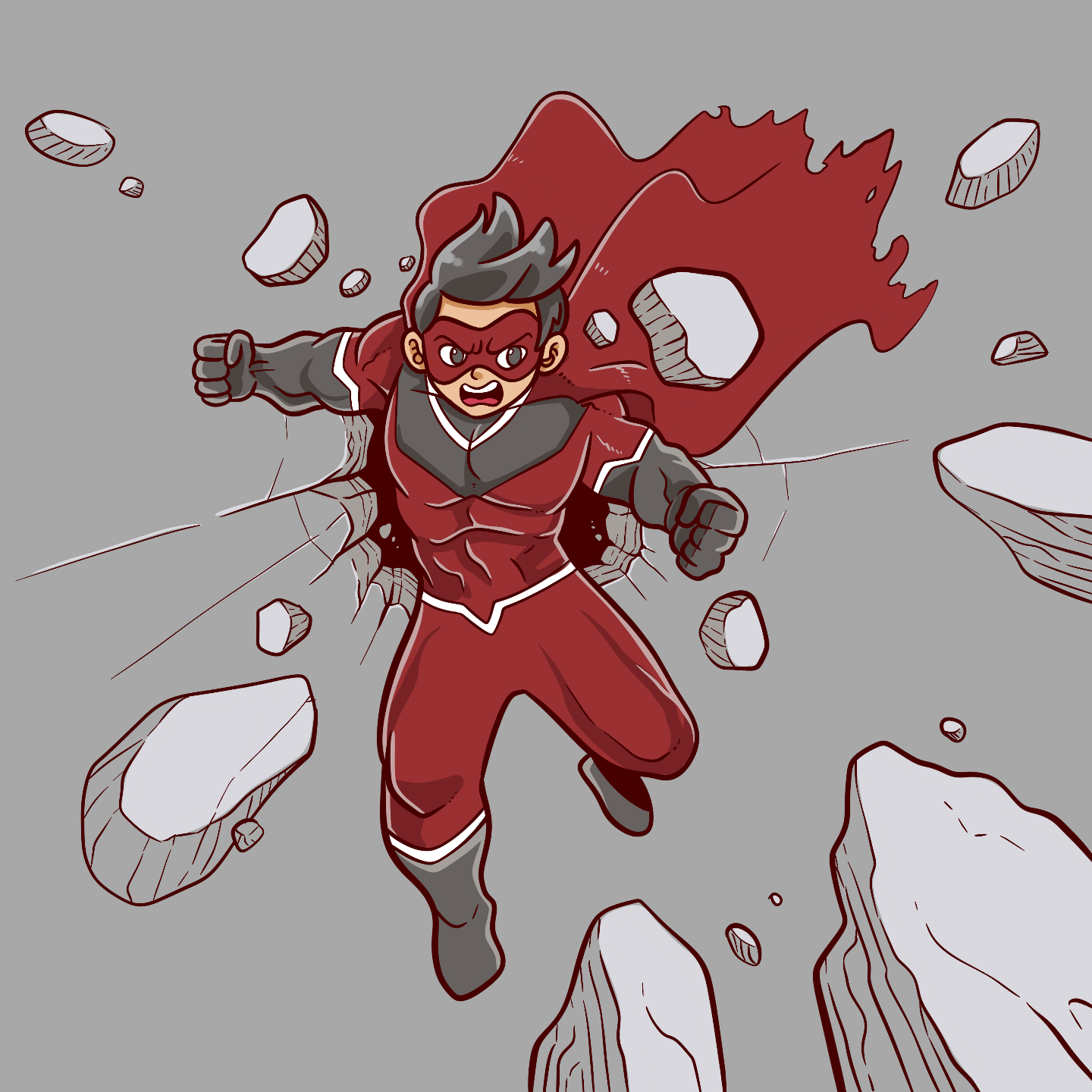THE 7 PATTERNS
The 7 patterns—Achiever, Fixer, Chameleon, Charmer, Commander, Rebel, and Invisible One—are behavioral and emotional archetypes that often emerge as coping mechanisms in response to childhood conditioning, particularly within the cultural context of Asian American families.
These patterns are shaped by collectivist values, parenting styles, and the bicultural tension of navigating Asian heritage and Western influences. This guide explores each pattern’s core traits, origins, impact on relationships, and evolution in immigrant families, offering insights into how they can either limit or empower personal growth and connection.
Take the Quiz: Discover Your Patterns
THE 7 PATTERNS: DETAILED PROFILES
First, some disclaimers...
1) While the 7 patterns were mapped out with the help of a therapist, they are NOT meant to represent personality types or cultural identities, nor are they an Asian-specific phenomenon.
It’s not meant to say: “these are the different types of Asians”, nor even that they’re different types of people. These patterns can be observed in just about anyone, of any culture or background, and there are many more that can appear. They are simply groupings of behavior and habit trends that were common enough to group into a shorthand, with musings of how they might have been influenced.
The 7 patterns should not be treated as a diagnosis, mental health advice, or even identity for anyone to take on. If you are experiencing any mental health concerns, always speak with a medical professional.
2) Each pattern reflects an adaptive strategy, which may be stemmed from anything from familial conditioning to social adaptations to find belonging.
For Asian Americans, these patterns are frequently influenced by collectivist values like filial piety and high achievement expectations, as well as the cultural clash between Asian collectivism and Western individualism in immigrant families. While these patterns once helped individuals navigate their upbringing, they can now limit growth and connection if left unexamined. Understanding them offers a path to self-awareness, authenticity, and healthier relationships.
3) These patterns are not flaws—they’re adaptive responses to cultural contexts that often place immense pressure on individuals to conform, achieve, and sacrifice.
For Asian Americans, they reflect the tension between the individual and the collective, integrating the BEST of our heritage and culture, while releasing adaptations we might have taken on in the past that might no longer serve us. The core concept is based on "bicultural integration", meaning how we can integrate all parts of who we are, and truly take leadership over our own lives.
The Achiever
Achievers are perfectionists who tie their self-worth to accomplishments. Driven and ambitious, they’re often high-performing but live with a persistent sense of “never enough,” feeling they must do more to prove their value.

LEARN MORE ABOUT THE ACHIEVER

The Fixer
Fixers are people-pleasers who derive worth from helping others. Empathetic and nurturing, they’re quick to solve problems but often neglect their own needs in the process.
LEARN MORE ABOUT THE FIXER
The Chameleon
Chameleons adapt their personality, behavior, and values to fit their environment. Highly attuned to social cues, they blend into any group but lose touch with their authentic self.

LEARN MORE ABOUT THE CHAMELEON

The Charmer
Charmers use positivity and charisma to captivate others, radiating warmth but struggling with self-acceptance, using charm to avoid emotional vulnerability.
LEARN MORE ABOUT THE CHARMER
The Rebel
Rebels define themselves by opposition, rejecting authority and norms. They value independence, but their rebellion can become a rigid identity that limits growth.

LEARN MORE ABOUT THE REBEL

The Commander
Commanders are micromanagers who control their environment to feel safe. Decisive and organized, they’re effective but driven by a need to manage unpredictability.
LEARN MORE ABOUT THE COMMANDER
The Invisible One
Invisible Ones self-abandon, shrinking to avoid being seen or heard, struggling with low self-worth and feeling unworthy of attention.

LEARN MORE ABOUT THE INVISIBLE ONE
DO YOU SEE YOURSELF IN ONE OR MORE OF THESE PATTERNS?
I know the feeling.
Adaptive patterns are things we learned to do to fit in, to succeed, or even to survive. Over time, these behaviours become habitual, a natural part of the way we speak and act.
At one time or another, I've experienced all of these patterns. And so did many of the hundreds of people I've spoken to and worked with. Over time, this has caused many people to shy away from promotions, giving credit to others that they deserve, or even burning out.
Working with a psychologist, I was able to identify the 7 most common ones that get in our way. These adaptive patterns of behaviour are not personalities or identities and aren't meant to be set in stone. But by becoming aware of them, we can start asking if they are serving us.
Every strength has a shadow, and knowing how to identify the patterns and DECIDING we want to step into them allow us the ability to own them, rather than be owned by them.
(That's me playing the violin when I was 4.)


